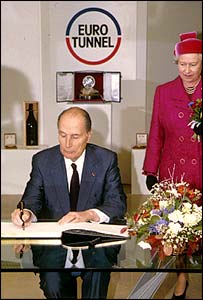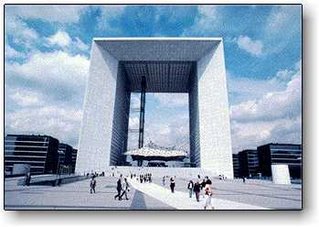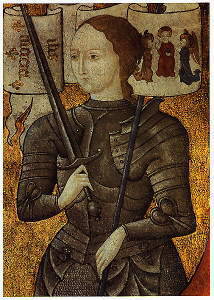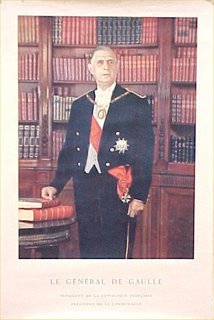To the astonishment of many profesional observers, Ségolène Royal has emerged as the queen of the socialist camp in France. The conservative views on family values expressed by this unmarried mother of four and compagnon of party chief François Hollande have won the confidence of an impressing majority of 61% of the party electorate. If she had been married in a traditional way to François Hollande, she
might have been considered an alien because of her husband's unfamiliar family name, but "Royal" appears to be an excellent trademark these days in socialist circles. Why is there no contradiction between socialism and royalism? History teaches us that monarchs have always tended to suppress individual initiatives and preferred to venture into what is called "Les grands projets". François Mitterand was the perfect incarnation of this monarcho-socialist approach to political power, and his "grands projets", from the "Grand Arche de la Défense" to the "Bibliothèque Nationale" are proof of the quest for "grandeur de la nation", for representation.


Socialists easily succomb to the seductive charm of "grand projets", to the phenotypical equality that monarchism seems to provide. In tiny Switzerland, the turbulent history of the Canton of Neuchâtel, a one-time Prussian duchy that became a full member of the Swiss Confederation as late as 1857, after several attempts to maintain monarchist rule between 1814 and 1856, the affinity between socialists and royalists
was evident throughout the conflict. Even in the late 20th century, modern socialist "Neuchâtelois" were proud to evoke their royalist traditions in private conversations.
Intelligent socialist leaders never touch monarchist privileges, and the "grand projets" are their "opium for the people".
This socialist support for "grandeur" is one of the fundamental problems of classical liberalism. Once socialist majorities are established, it is extremely difficult to fight them because of the visibility of big public spending for "grand projets". Liberals who are brave enough to oppose the most extravagant "grand projets" easily become victims of media critique for lacking the sense for representation by the state that appears to be "good for everyone",
Ségolène Royal's chances to be elected are therefore linked to her capacity to give a sense of "grandeur" to the nation's ego much more than to her political concepts or to her gender. Senior right-wing condottiere Le Pen, still a possible presidential candidate for the extreme right, used to make Jeanne d'Arc

his point of reference in France's glorious history, but Mme Ségolène clad in shimmering Royal Armour could easily overshadow "La Pucelle".
If she wins, public spending on "grand projets" certainly will not suffer...
On the other hand, if the winner is Nicolas Sarkozy, chances for abandoning the quest for "grandeur de la nation" are minimal.To be elected, Sarkozy needs the support of the entire Gaullist establishment, and who would be fool enough to deny to the late General Charles de Gaulle the honour of being a "republican monarch".

No comments:
Post a Comment